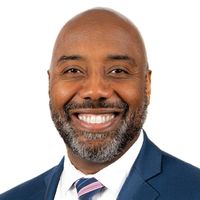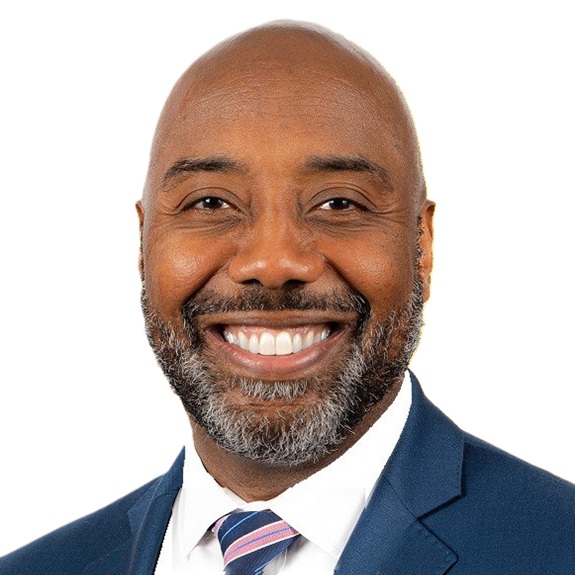How to Control Your Business Exit
Many business owners reach retirement age only to find they don’t have a viable exit plan. Avoid falling into that trap by getting your company ready for sale now.


Profit and prosper with the best of Kiplinger's advice on investing, taxes, retirement, personal finance and much more. Delivered daily. Enter your email in the box and click Sign Me Up.
You are now subscribed
Your newsletter sign-up was successful
Want to add more newsletters?

Delivered daily
Kiplinger Today
Profit and prosper with the best of Kiplinger's advice on investing, taxes, retirement, personal finance and much more delivered daily. Smart money moves start here.

Sent five days a week
Kiplinger A Step Ahead
Get practical help to make better financial decisions in your everyday life, from spending to savings on top deals.

Delivered daily
Kiplinger Closing Bell
Get today's biggest financial and investing headlines delivered to your inbox every day the U.S. stock market is open.

Sent twice a week
Kiplinger Adviser Intel
Financial pros across the country share best practices and fresh tactics to preserve and grow your wealth.

Delivered weekly
Kiplinger Tax Tips
Trim your federal and state tax bills with practical tax-planning and tax-cutting strategies.

Sent twice a week
Kiplinger Retirement Tips
Your twice-a-week guide to planning and enjoying a financially secure and richly rewarding retirement

Sent bimonthly.
Kiplinger Adviser Angle
Insights for advisers, wealth managers and other financial professionals.

Sent twice a week
Kiplinger Investing Weekly
Your twice-a-week roundup of promising stocks, funds, companies and industries you should consider, ones you should avoid, and why.

Sent weekly for six weeks
Kiplinger Invest for Retirement
Your step-by-step six-part series on how to invest for retirement, from devising a successful strategy to exactly which investments to choose.
Owning a business is all-encompassing. The buck stops at your front door. It often feels like no one else cares quite as much or works quite as hard as you do. And it’s easy to get caught up in a false mindset of, “If I don’t do it, it’ll never get done.”
It’s why walking away when the time comes can feel like such a wrench. A bit like selling a much-loved home or seeing your kids head off to college. For some owners, this will mean passing the company onto the next generation of the family, while for others it will involve selling to a third party. And spoiler alert: There’s nothing I can suggest that will completely remove the emotional upheaval of saying goodbye to a business that you’ve poured your heart and soul into for years.
However, the good news is that there are ways to control the financial elements of exiting, especially if you’re planning to sell and therefore need to find a buyer. This is something many owners leave right until the moment they want to step aside and, as a result, they can often find themselves locked inside a gilded cage. After all, it’s perfectly normal for the process of finding the right buyer to take three, four or even five years. Which means no matter how much your business is worth, the amount of time between deciding you want to exit and actually doing so can be frustratingly long.
From just $107.88 $24.99 for Kiplinger Personal Finance
Become a smarter, better informed investor. Subscribe from just $107.88 $24.99, plus get up to 4 Special Issues

Sign up for Kiplinger’s Free Newsletters
Profit and prosper with the best of expert advice on investing, taxes, retirement, personal finance and more - straight to your e-mail.
Profit and prosper with the best of expert advice - straight to your e-mail.
Here are three ways to get ahead of the game now and control your exit on your terms:
1. Set your timeline well in advance
Rather than wait until you’re starting to wind down, the moment to decide how and when you want to sell your business is while you’re at the top of your game. For most owners, that probably means somewhere around their early 50s, well ahead of retirement age but with enough experience to get the process right.
Having this clear timeline in place helps create a sense of structure and orderliness for both the sale itself and for how you go about steering the company toward it in the meantime.
2. Identify the who
Of course, a major part of preparing your business to be bought is finding someone to sell it to. As previously discussed, this is a process that can take several years and should involve carefully vetting potential buyers for whether their values, aspirations and ideas for the business’s performance and culture align with yours. That way, you can ensure the company continues to be run in your image even after you exit. (This is equally relevant if you’re passing the baton to a loved one too).
3. Be smart about the how
Once you’ve identified your buyer, the key question to answer is how the purchase will be financed. One option here is that that your buyer has sufficient cash or bank financing to purchase your business outright – which is great! Another is that they don’t have sufficient capital (either owned or borrowed) to finance the deal in one transaction. So instead, you complete an installment sale where you allow the buyer to make payments to you over an extended period.
Or you could opt for a tax efficient third option: the hybrid. Here you set up a tax-sheltered Institutional Corporate Life Insurance policy that you regularly add money to in the years between identifying your buyer and completing your exit. At point of sale, you then invest this fund into the business (giving you an increased cost basis) before bonusing it to the buyer as a salary expense. They then use the money to help finance their purchase of the company, which also makes them more “bankable” for the rest of the loan they need. Unlike in the first two options, this hybrid path lets you benefit from several significant tax breaks. So, make sure you speak to a qualified financial adviser who can help you structure it as effectively as possible.
Whichever path you plan to take, whatever the value of your business and whenever you intend to exit, these three steps can help you do so in a way that ensures you get the best possible financial outcome for yourself and for future generations of your family.
What’s more, it can even lessen the emotional strain of stepping away by giving you more time to mentally prepare for it. So, when the time comes, it will feel like less of a shock and more of an exciting transition into a relaxing and enjoyable life after business ownership. Because let’s be honest, you’ll have earned it!
Profit and prosper with the best of Kiplinger's advice on investing, taxes, retirement, personal finance and much more. Delivered daily. Enter your email in the box and click Sign Me Up.

Stephen Dunbar, Executive Vice President of Equitable Advisors’ Georgia, Alabama, Gulf Coast Branch, has built a thriving financial services practice where he empowers others to make informed financial decisions and take charge of their future. Dunbar oversees a territory that includes Georgia, Alabama and Florida. He is also committed to the growth and success of more than 70 financial advisers. He is passionate about helping people align their finances with their values, improve financial decision-making and decrease financial stress to build the legacy they want for future generations.